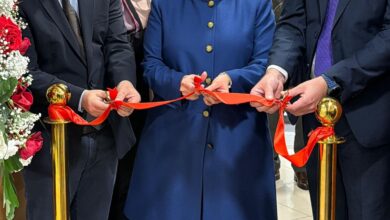New draft drug law for 2025 unifies legislation, tightens controls, and imposes harsher penalties
By merging legislation, embracing digital governance, empowering enforcement, and integrating treatment-focused reforms, the 2025 draft law marks a significant step toward a more comprehensive and balanced national strategy to combat drugs and psychotropic substances in Kuwait.

The new draft decree-law for 2025 on combating drugs and psychotropic substances introduces a unified legal framework that merges existing laws on narcotics and psychotropic substances.
The reform aims to consolidate provisions, modernize oversight, and strengthen deterrence measures against drug-related crimes, while promoting a more humane approach to rehabilitation and treatment.
According to informed sources at the Ministry of Justice, the draft law—recently approved by the Cabinet—tightens control over the medical use of psychoactive substances by introducing strict regulations on prescriptions and medical reports.
Doctors are prohibited from dispensing psychotropic drugs without an approved medical justification, with violations punishable by up to three years in prison. Pharmacies face fines of up to 100,000 dinars and potential closure for as long as five years if they fail to secure controlled substances properly.
The legislation also regulates the import of prescribed narcotics by patients arriving from abroad, requiring that their prescriptions be verified by Kuwaiti authorities—either locally or through electronic approval before arrival.
Travelers carrying such substances must present their medical prescriptions at entry points to confirm the quantities allowed. These measures aim to curb misuse, prevent forgery, and eliminate illicit recruitment for fraudulent prescriptions.
New Oversight and Preventive Mechanisms
A key feature of the draft law is the creation of a Supreme Council for Combating Drugs and Psychotropic Substances, tasked with overseeing national policies and strategies in this field.
The law also broadens preventive testing by authorizing drug screening for individuals applying for marriage, driver’s or gun licenses, and public employment. For the first time, government agencies may also conduct random, periodic drug tests among employees.
Police officers are granted expanded authority, including the right to arrest individuals suspected of drug use without prior warrants, closing legal loopholes previously exploited by offenders.
The law introduces new offenses under the category of social deterrence, criminalizing the act of knowingly associating with drug users, which is punishable by up to three years in prison. Incitement or encouragement to use drugs carries the same penalty.
Planting narcotics on others or forcing them to consume drugs without their knowledge is punishable by imprisonment of up to 15 years, and potentially by death if the victim is subsequently convicted and sentenced to execution as a result
Digital Transformation in Licensing and Monitoring
The draft law promotes digitalization in licensing and monitoring processes. Physicians and healthcare institutions will be required to electronically record and report the dispensing of narcotic drugs, including quantities and justifications.
This shift to a centralized digital database will enable real-time monitoring, enhance transparency, and modernize regulatory oversight—replacing the outdated paper-based systems of the 1980s.
Stricter Penalties for Traffickers and Promoters
Penalties under the new law have been significantly increased to reflect the gravity of drug-related crimes. The death penalty remains the maximum punishment for major traffickers and smugglers, alongside fines of up to two million dinars.
Execution sentences may also apply to individuals smuggling drugs into prisons, rehabilitation centers, or places of worship and sports clubs, as well as to public officials who exploit their positions for trafficking.
The same penalty extends to those who distribute narcotic or psychotropic substances for free as a means of promotion or enticement if they target multiple individuals. Those who refuse to undergo a drug test without a valid reason face up to two years in prison.
Therapeutic and Humanitarian Approach
While the law takes a tough stance against traffickers and distributors, it adopts a rehabilitative approach toward users, recognizing addiction as a medical condition requiring treatment rather than punishment.
The draft guarantees full confidentiality of addicts’ data, criminalizing the disclosure of information related to treatment cases with penalties of up to two years in prison and a fine of up to 10,000 dinars.
Individuals who voluntarily seek treatment are exempt from criminal prosecution, a provision designed to encourage recovery without fear of legal repercussions.
Furthermore, the law allows for compulsory admission to rehabilitation centers for up to six months, based on confidential reports of drug use, ensuring that individuals receive appropriate care and supervision.
By merging legislation, embracing digital governance, empowering enforcement, and integrating treatment-focused reforms, the 2025 draft law marks a significant step toward a more comprehensive and balanced national strategy to combat drugs and psychotropic substances in Kuwait.












